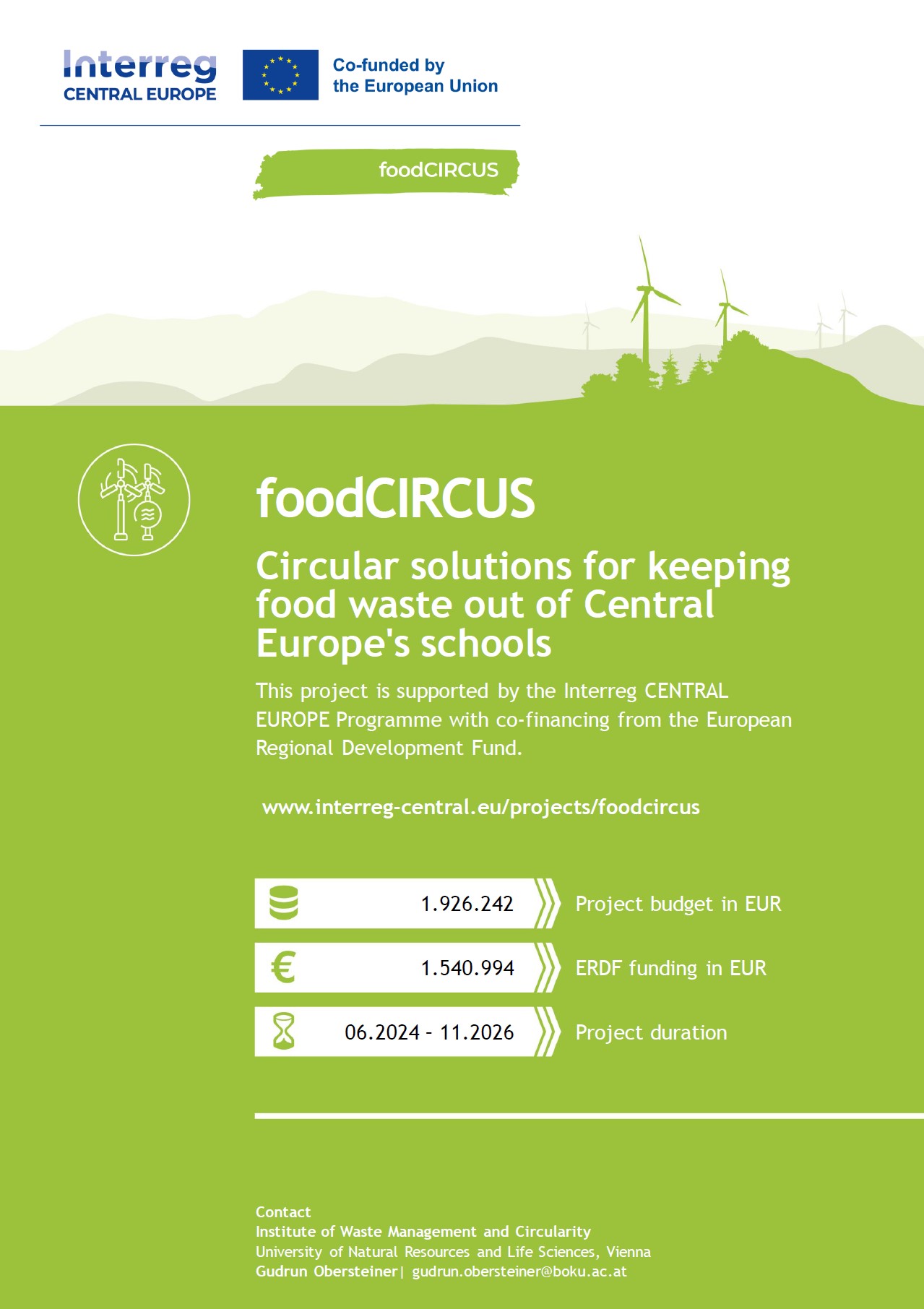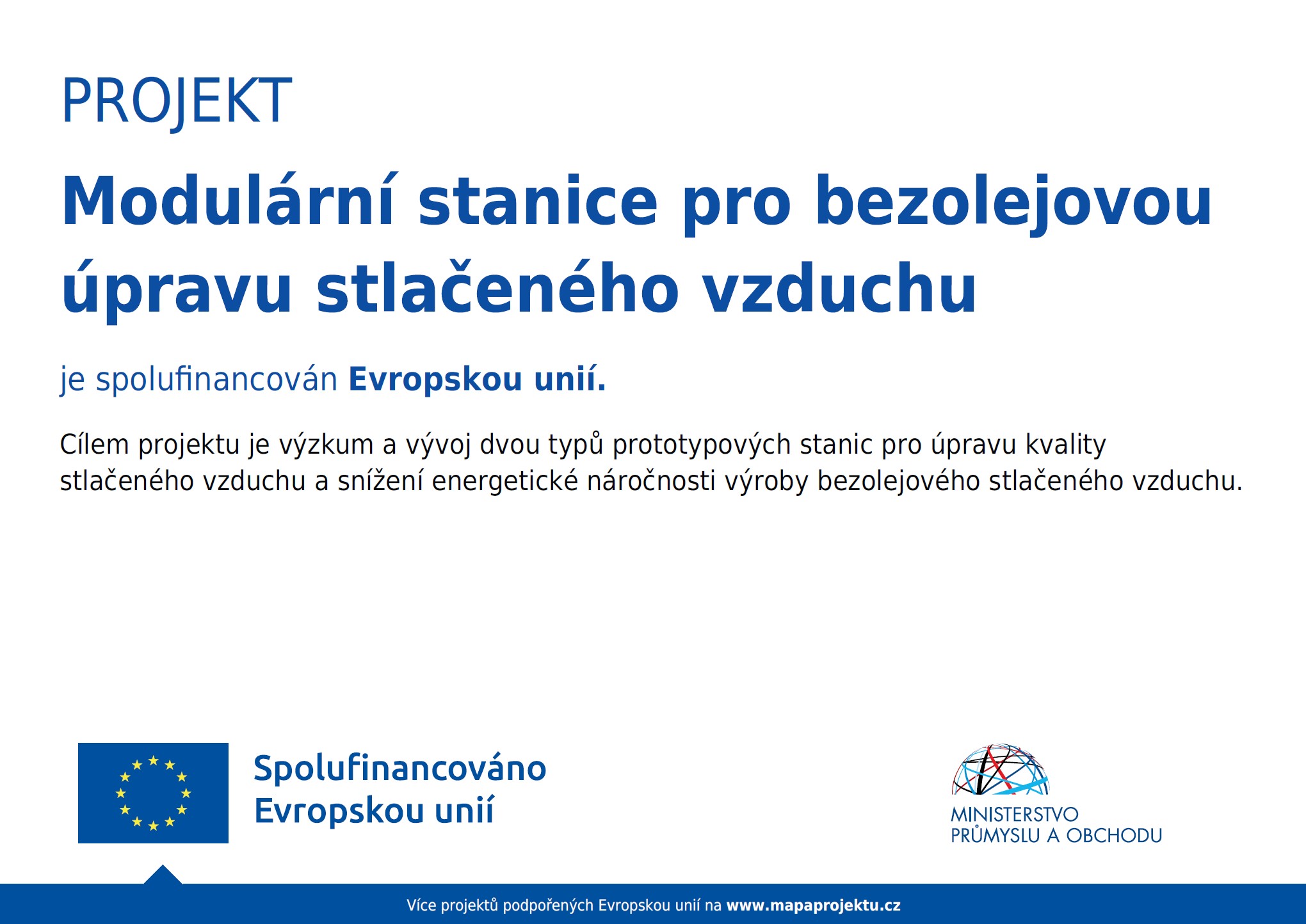Required publicity
Increasing the resilience of energy networks in the context of decarbonisation, decentralisation and sustainable socio-economic development
Registration number: CZ.02.01.01/00/23_021/0008759
Duration: 2026 - 2028
Project research subject: The project focuses on research and development of software tools for the analysis of the efficiency and resilience of the installation of new energy sources and storage capacities for use within energy communities and research in the field of hydrogen production, transport and storage. This includes social science research to support the acceptance of these specialised technologies by the general public, development of cooperation with the application sector, project preparation, infrastructure upgrading and RIS3 compliance.
Programme website: Programme Johhanes Amos Comenius

Interreg SK-CZ: Promoting biodiversity by eradicating invasive plants using energy
Registration number: ITMS NFP403201DXT7
Duration: 2024 - 2026
Total project budget: 499 923,63 EUR
Given the threat posed by the spread of invasive plant species, there is an urgent need to develop effective methods for eradication and management of this type of biomass. Invasive plant species were mostly introduced as ornamental or honey-bearing plants, which quickly spread from parks and plantations to the surrounding areas and started to take over new areas. Some of these species are now forming extensive stands, most often along watercourses, roads, railways, in abandoned areas, but also encroaching on native plant communities (habitats). In the case of their mass spread, they significantly change the character of habitats, threaten native plant species and create homogeneous monocenoses. The project addresses the current environmental problems associated with invasive plants, enhances the protection and conservation of nature and biodiversity, and contributes to energy objectives and strategies, making it a relevant tool in the fight against climate change.
Programme website: Program 2021-2027 – Interreg Slovensko – Česko

The project is implemented thanks to the Interreg SK-CZ programme and co-financed by the European Union.
foodCIRCUS - Circular solutions for keeping food waste out of Central Europe´s School
Registration number: CE0200718
Duration: 2024 - 2026
The project aims at collaborating towards a greener Central Europe moving the circular economy forward. The consortium formed by 10 partners will address food waste prevention in schools in the partner country. Based on food waste rates measured in schools, they will develop tools to prevent food waste and develop thermal and biochemical technologies to process the waste generated. The project activities are divided into 3 work packages: WP 1 - Food Waste Prevention including monitoring, Prevention, Redistribution, Tools. WP 2 - Food waste treatment including insects, biorefinery/biochemistry and torefication as downstream treatment, WP 3 Evaluation and policy recommendations.
Leaflet: Available here

Modular station for oil-free compressed air treatment
Registration number: CZ.01.01.01/01/22_002/0000886
Duration: 1.5.2023 - 31.3.2026
The project deals with the research and development of two prototype modular compressed air treatment stations for achieving the purity of oil-free compressed air (class <1) according to ISO 8573-1 using catalytic cleaning. From a design perspective, these stations will be modular and designed to be connected to any compressed air source for indoor and outdoor use. The output will be two Gprot-prototype results. Uses: as a backup for oil-free compressor failures and as a full compressed air treatment in all 3 parameters of ISO 8573-1 - solids, water and oil (hydrocarbons) content.
Leaflet: Available here

National Hydrogen Mobility Centre
Registration number: TN02000007
Duration: 2023 - 2028
The Centre is being established in the framework of the implementation of the Hydrogen Strategy for a Climate Neutral Europe and the Hydrogen Strategy of the Czech Republic, which reflects the goal of the Green Deal for Europe to achieve climate neutrality by 2050. The Centre aims at R&D&I cooperation of key actors of the Czech Republic - the state, research organisations and enterprises in the field of hydrogen technologies and is based on the principles of integral ecology. The strategic objectives of the Centre are: 1. R&D&I support for the reduction of greenhouse gas emissions in transport using hydrogen technologies and 2. support for the economic growth of the Czech Republic in connection with the introduction of hydrogen technologies in transport. The aim of the Centre is to support the acceleration of the process of implementation of hydrogen technologies while minimising the associated costs and to support balanced production and consumption of hydrogen.
The project "National Hydrogen Mobility Centre" is co-financed with state support from the Czech Technology Agency within the National Competence Centre Programme. This project is funded under the National Recovery Plan from the European Recovery and Resilience Facility.

Research on processes involving the production of biopellets
Registration number: SS07020061
Duration: 2024 - 2026
Research on combinations of raw natural resources is currently extremely lengthy. With the increasing interest in pellet heating, there is a growing interest in alternative pellets from renewable natural resources. Therefore, the subject of the project will be the development of a prototype process line to accelerate research into the possibilities of using renewable natural energy sources. The process line will be used to rapidly test and assess the extent/limit of manufacturability of pellets from diverse natural resources, waste biomass and different blends. It is a new technological solution to accelerate research on the applicability of different types of natural resource mixtures leading to a reduction of greenhouse gas emissions, a reduction of dependence on fossil fuels and gas and ultimately a move to a higher level in the circular economy.
The project "Research on processes involving the production of biopellets" is co-financed with state support from the Technology Agency of the Czech Republic and the Ministry of the Environment of the Czech Republic within the Environment for Life Programme. This project is funded under the National Recovery Plan from the European Recovery and Resilience Facility.

